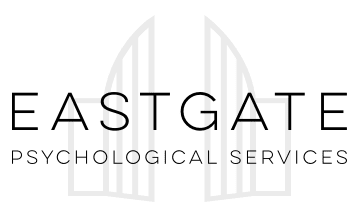As a Canadian, it is almost all I can do to bear with the constant breaking news over who is doing what to whom– especially in the form of the current administration to our south. “51st state”, tariffs on, tariffs off, a “call to arms” from our leaders telling us not to buy from or travel to the US– it’s a lot to take in! From one perspective, I’ve been
When this all began in earnest a little under 2 months ago, I fully expected my clients to start expressing anxiety (or at least, worry) over these changes in international relationships. My experience is that as we all are swimming in the same waters and breathing the same air, we all are affected by the news of the moment. Whether we are in the majority of Canadians and resistant to the idea of a more explicit American hegemony, or we are in the minority who believe we would be better off being a part of their union, the only comparison I have for the breathless pace at which circumstances seem to be changing are the early days following 9/11 or the pandemic in 2020. In truth, I expected an uptick in anxiety management much like what happened after the reality of the pandemic set in.
But really? Not one person has mentioned on their own volition how these days are affecting them. At first, I figured it was because the stresses and difficulties for which they were seeking help were shouting so much louder than international relations, but maybe that wasn’t it after all. After recently canvassing a few other psychologists about what they are hearing from their clients, it sounds as though the people I am working with don’t seem to be as up in arms about the state of affairs as others are.
Why? I can think of a few reasons:
As most of my clients are of Asian descent, it may be that a cultural impulse towards “keeping your head down” and stability in work and family life are feeding a sort of “oh well what are you going to do” mentality. Perhaps this comes from a long history of empires rising and falling in the background while fields still need to be tilled, crops planted, and then harvested. Perhaps this is an artefact of fatalism in the psychology of Asian people, wherein individual responses to difficulty don’t seem to matter as much as how the fates or gods decide according to their divine whims.
It may also be that as most of my clients are chronically busy with careers and families, the stress of that busyness precludes worry about things they can’t control. It’s difficult to muster the energy to think deeply about larger scale things that don’t have immediate impact on us while having to think about enrolling kids for swimming lessons, deciding what’s for dinner, and feeling the weight of work that consumes almost all of our most energetic hours.
It may even be that as the somewhat higher (though not extravagant) socioeconomic status of people who can afford therapy means that there is a degree of hedge against the economy taking a long downturn. The first people to have their livelihoods affected probably aren’t office workers, but rather, are those who work in manufacturing or transportation. In addition, most of the people I work with likely have some sort of savings on which they can draw.
Or, maybe there is an even deeper thing: that as my clients are mostly people of colour, they are always anxious. They haven’t had the privilege of fitting in or not worrying how things will work out. Life has felt like a careening from one crisis to another where safety has been in short supply. What is being done now is only an extension of the reality they have been holding inside all this time.
Yet even as much as I’m surprised by the lack of chatter about how bad things appear to be going on the world stage, perhaps there’s a helpful lesson in it.
When I work with people whose fear keeps them from moving forward with their lives, I sometimes tell them to “shorten their gaze.” That is, instead of thinking about what will happen in the next week, the next month, or the next year, it’s better to think about what’s for dinner and to make the best of what is available to you in the moment.
This is not a strategy of avoidance. Avoidance is undergirded by a fear of even thinking about the possibility of things going wrong. Instead, this is a measurement of your ability to look at the chaos and to feel alarmed, but also to tend to what your body and your people need at this time. To shorten your gaze means to focus on what is in front of you while still being aware of all that is going on around you.
I suppose critics of this approach might still say that this is avoidance or deliberate naïveté. There is a well-worn meme of a dog with an insipid smile on its face, sipping coffee while the building it sits in is in flames saying, “this is fine.” But shortening your gaze does not mean ignoring the house on fire in favour of obsessing over a new series or becoming lost in fashion drops. It means that in light of how the house is on fire, can we make meaningful decisions in the moment that support your life and the lives of those you know and love? In time, we may be asked to speak out against the harm. But until then, perhaps a greater act of resistance is to live quietly and faithfully to guard what peace we have left.
It takes an inordinate amount of courage to let yourself bear witness to the terror of our times, and still, despite the temptation to be paralyzed by fear, to continue with what is before us.

